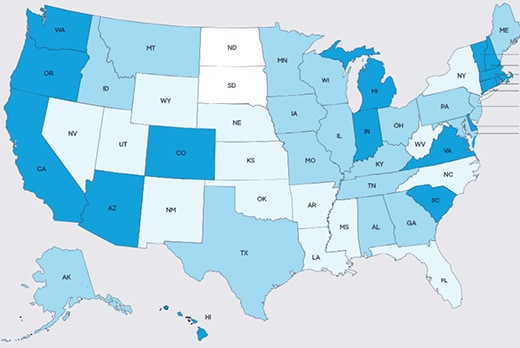Updated: May 12, 2023

Article highlights
- Your financial aid package shows you how much money you’ll receive in the form of grants, scholarships, and opportunities like work-study.
- It’s possible to appeal a financial aid package, especially if your family’s financial circumstances have changed.
- While there’s no guarantee your financial aid appeal letter will be approved, the school will not rescind your admission.
Imagine getting into your dream school, only to discover that even with your financial aid award package, tuition is going to be a stretch.
Your award letter outlines:
- The different types of aid you’ve been awarded (loans, grants, scholarships, etc.)
- Your award amounts
- How much your family is expected to contribute
- What the net cost to you and your family will be (also known as the Cost of Attendance or COA)
If you get accepted to multiple schools, comparing your award letters side by side can help you better understand your financial responsibility. But if there’s been a change in your family’s financial circumstances since you’ve completed the FAFSA® (Free Application for Federal Student Aid), you may be able to appeal your financial aid award. Just keep in mind that an appeal may not be granted, or the revised financial aid package may not meet your needs. But even if a school denies your appeal, they will not deny your admissions decision if you ask for more money.
Reasons to submit a financial aid appeal letter
Your reason for appealing your financial aid award will need to be more substantive than “I want more money.” But there are many legitimate reasons why your information may deserve another look by the financial aid office.
The FAFSA uses your tax returns from two years prior to help determine your aid eligibility. A lot can change in two years. If your family’s financial situation has changed considerably since then, you may need more financial aid than you’ve been offered. There are many reasons why that might happen, such as:
- Your family has experienced a loss of income due to unemployment or underemployment.
- Someone in your family has experienced a medical, dental, or mental health issue that has impacted their ability to work and/or resulted in major expenses.
- There’s been a birth, death, separation, or divorce in the family that has impacted your ability to pay for college.
- You have a sibling at an expensive private school that limits the funds available for your college education.
- You have unusually high child care costs.
- Your family has suffered from a natural disaster.
- You have parents who are enrolled in college at least half-time.
When to draft an appeal letter for financial aid
If you’re going to write an appeal letter for financial aid, time is of the essence. Some forms of federal financial aid are awarded on a first-come, first-served basis. Dragging your feet on your appeal letter could mean missing out on additional aid. What’s more, if you let it go for too long, there’s also a chance your school may postpone reviewing it until the following academic year. So it’s best to submit it as soon as possible to prevent any delays.
How to write a financial aid appeal letter
Drafting an effective appeal letter for financial aid doesn’t have to be complicated. Here are five simple steps for appealing:
- Contact the financial aid office
Find out the specifics of their process, which varies from one school to school. It might include filling out an online form or submitting an appeal by mail or email. - Be professional
When writing a financial aid appeal letter, format it like a business letter and address it to a specific person at the financial aid office so it doesn’t get lost in the shuffle. Keep the tone professional and be gracious. Making demands for more aid will probably do more harm than good. - Be as specific as possible in your request
For example, if your family has lost income or had outsized hospital bills, state the amounts and provide supporting documents. That may include proof of unemployment, tax returns, bills, or correspondence to back up your claim. - Keep it brief
All the school really needs to know is what’s changed and how it’s affecting your ability to pay for college. Try to keep your appeal letter to a single page that clearly explains your situation. - End it on a positive note
Reiterate how much you’d love to attend this school and that you’re available to answer any questions or provide additional documentation as needed. Then be sure to follow the school’s directions for submitting your letter.
What to do if you don’t win your appeal
The best case scenario is that the financial aid office agrees to increase your aid amount. But if they don’t, you still have options.
- Expand your scholarship search.
- Look into grants, which provide free money that doesn’t have to be repaid.
- Consider a less expensive school.
- Start your college education at community college, save some money, and then transfer to a university.
- Apply for additional student loans to cover the remaining expenses.
FAFSA® is a registered trademark of the US Department of Education and is not affiliated with Discover® Student Loans.











